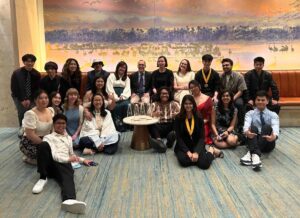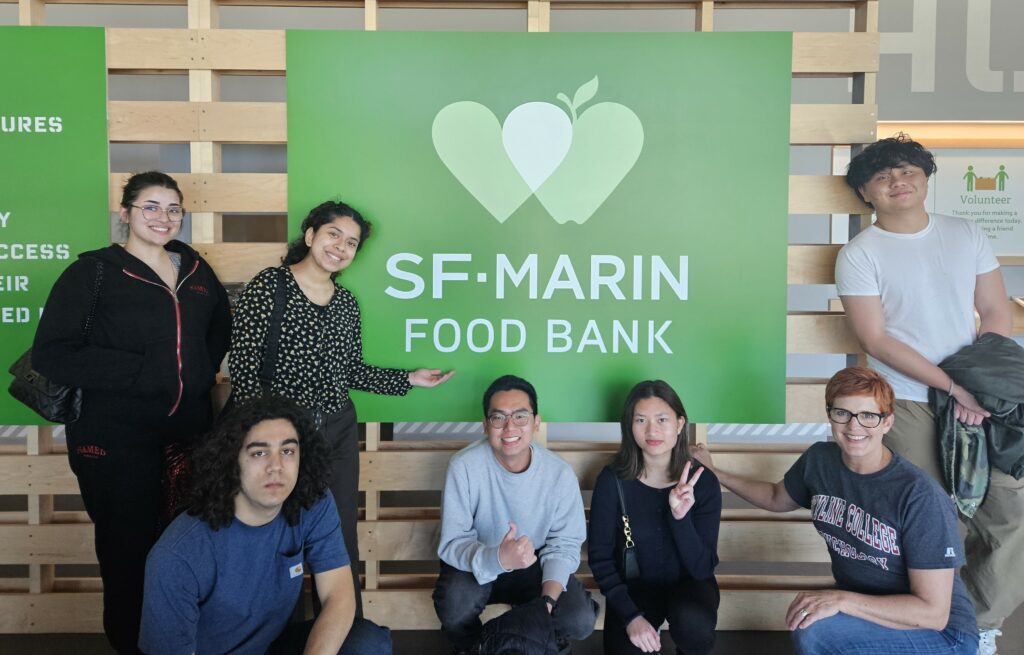 On March 4, 2014, Skyline College was honored to welcome world-renowned economist, indigenous sustainability expert, environmental and human rights activist, and acclaimed author Winona LaDuke to campus as part of the Spring 2014 College Lecture Series, A Call to Consciousness. Winona LaDuke is of Anishinabe (Ojibwe) Native-American descent and lives on the White Earth Reservation in northern Minnesota. At White Earth she is the Executive Director of Honor the Earth where she works on an international level to advocate, raise public support, and create funding for frontline native environmental groups.
On March 4, 2014, Skyline College was honored to welcome world-renowned economist, indigenous sustainability expert, environmental and human rights activist, and acclaimed author Winona LaDuke to campus as part of the Spring 2014 College Lecture Series, A Call to Consciousness. Winona LaDuke is of Anishinabe (Ojibwe) Native-American descent and lives on the White Earth Reservation in northern Minnesota. At White Earth she is the Executive Director of Honor the Earth where she works on an international level to advocate, raise public support, and create funding for frontline native environmental groups.
Currently, Winona is utilizing her training in rural economic development, renewable energy and environmental justice as Director of Honor the Earth in campaigns against fracking on Native lands, highly volatile tar sands oil pipelines through pristine wilderness, coal mining, and the extreme extraction of minerals.
 LaDuke spoke to the Skyline College community about the realities surrounding these energy endeavors, in particular their effects on democracy, climate change, peek oil, and food security. She framed this focus on the long-term sustainability of the earth, reminding the audience of the historical destruction these activities have had and their effects on future generations.
LaDuke spoke to the Skyline College community about the realities surrounding these energy endeavors, in particular their effects on democracy, climate change, peek oil, and food security. She framed this focus on the long-term sustainability of the earth, reminding the audience of the historical destruction these activities have had and their effects on future generations.
As examples of the dangerous effects of these projects, LaDuke addressed these issued in a slideshow that featured photos of the ice melt in Greenland and the Arctic Ocean, carbon dioxide effects on the world’s oceans, extreme weather phenomena, such as Hurricane Sandy and Typhoon Hiyan, fuel poverty, privatized militarization, and the costs of oil dependence to the US economy.
LaDuke also looked at how energy use affected the food economy, such as transportation factors—the price of gas affecting the costs of food. As contrast, LaDuke pointed to the Indigenous Corn Restoration Project, an indigenous grassroots project that resulted in local communities developing eight thousand varieties of drought, wind, and frost resistant corn with higher nutritional values than corn commonly produced at the industrial level.
 Throughout the lecture, LaDuke reminded students of the importance of democratic control over undertakings that effect society. She pointed out that students have power to effect change as long as they remain engaged.
Throughout the lecture, LaDuke reminded students of the importance of democratic control over undertakings that effect society. She pointed out that students have power to effect change as long as they remain engaged.
Article by John Saenz | Photos by Margo Feldman and Raul Garcia






